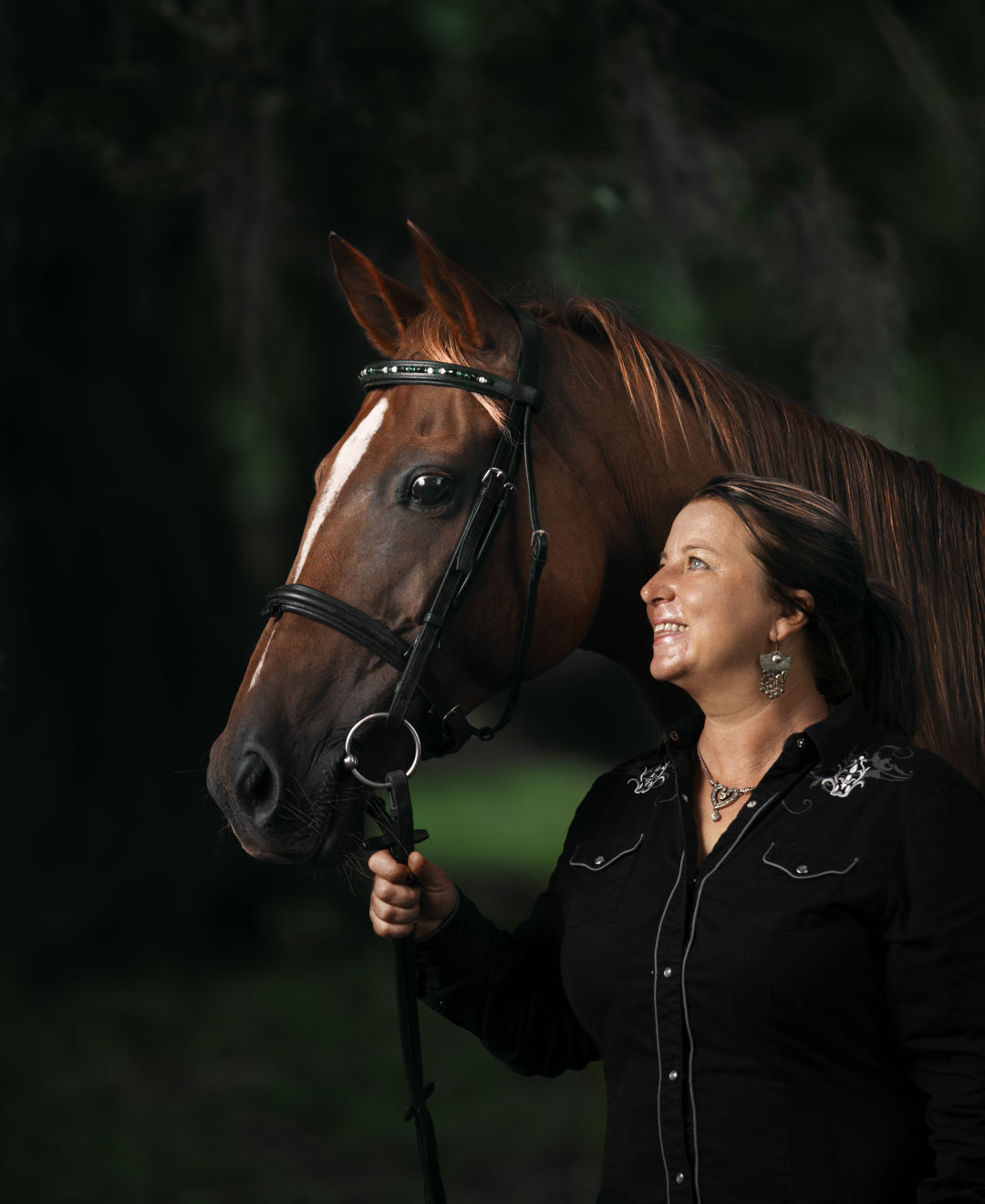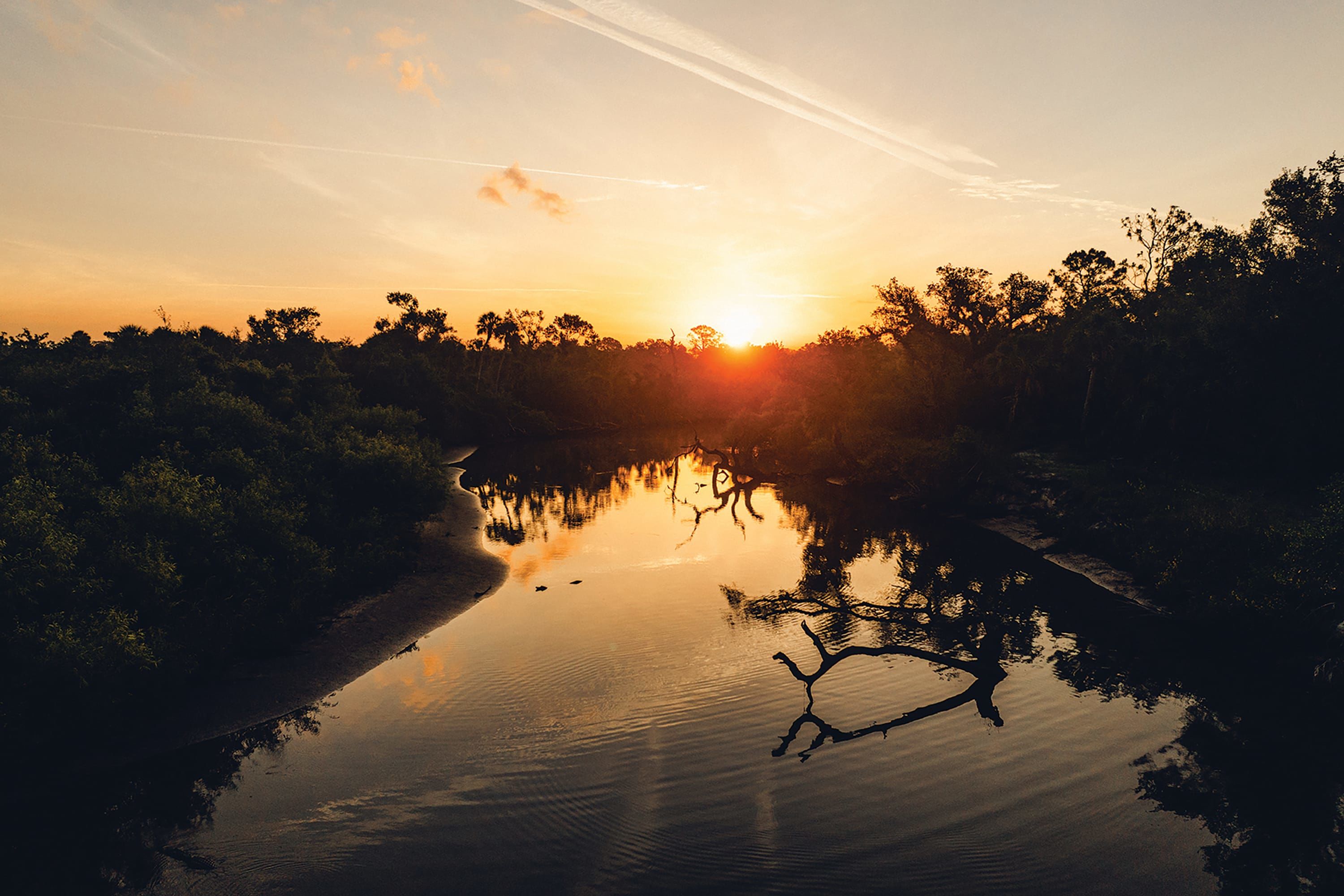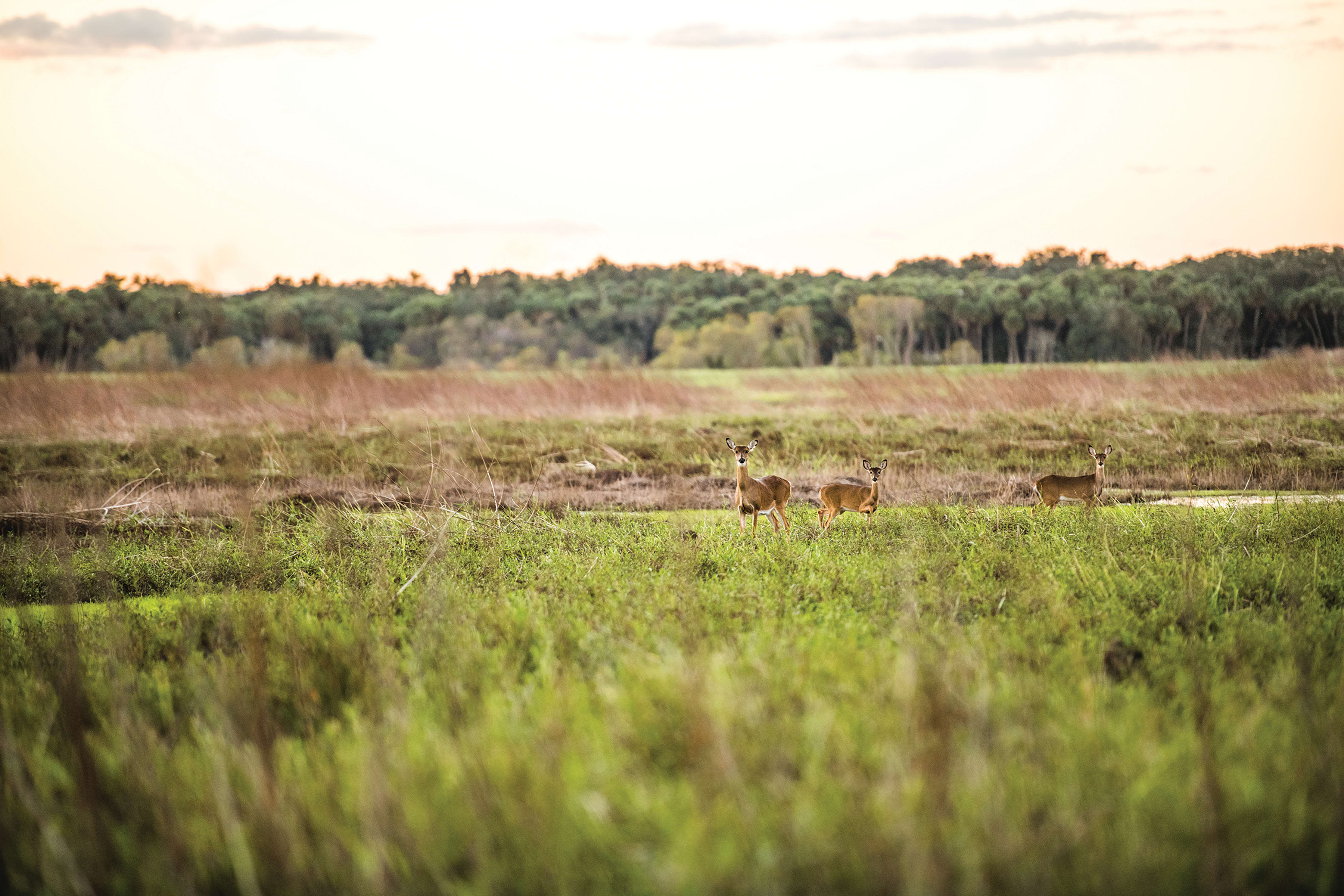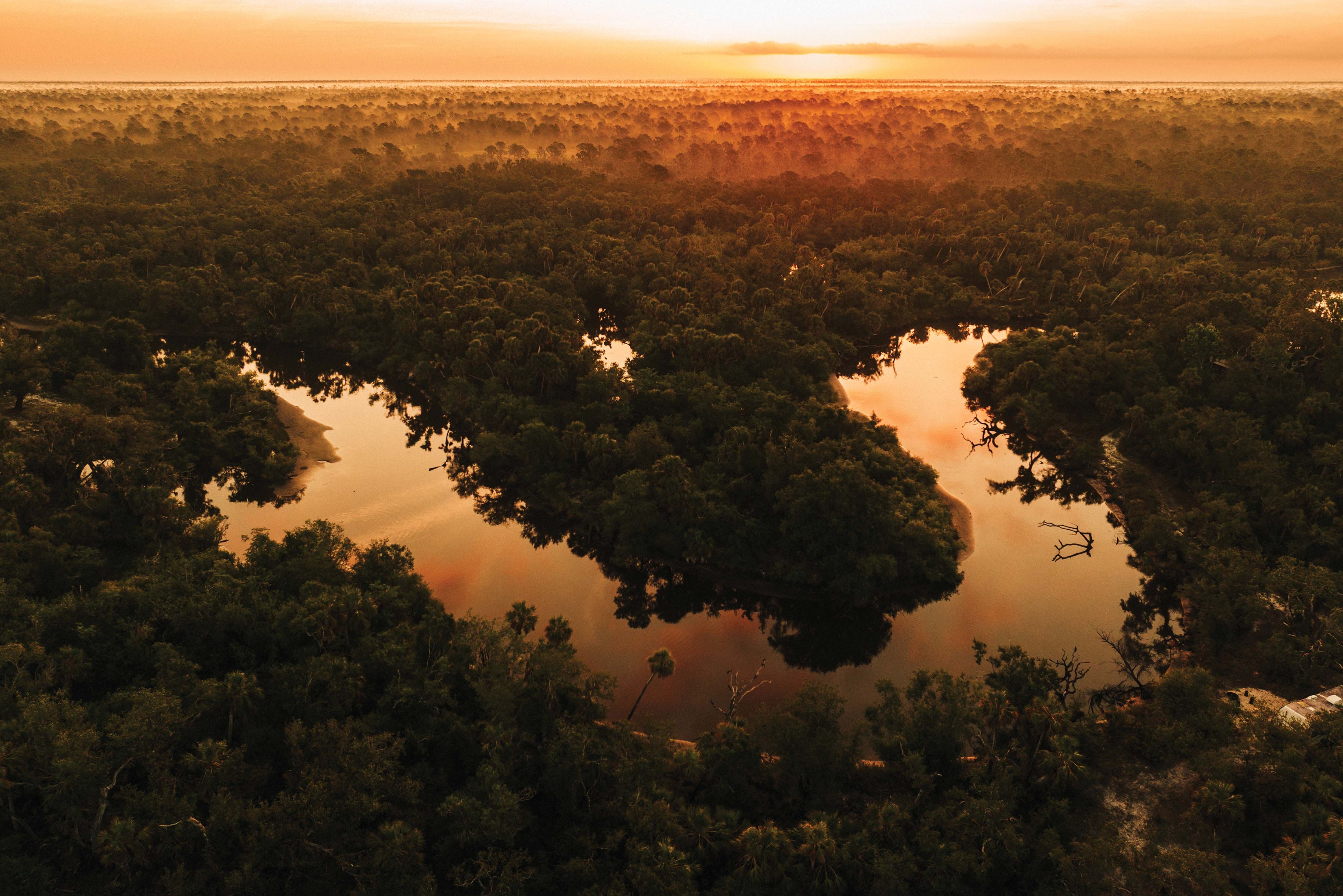A Myakka Woman Wants to Save the Akhal-Teke

Dasha Cole with her Akhal-Teke mare, Tikka.
Image: Fred Lopez
It’s not often you can rent a beautiful, ancient and rare breed of horse for a trail ride, but at Dasha Cole’s Myakka River Trail Rides, the endangered Akhal-Teke horses are available for greenhorns. Cole, who grew up in Tashkent, Uzbekistan, immigrated to the U.S. 20 years ago and worked as a translator. But her heart was always with horses.
So three years ago, she began operating Myakka River Trail rides on 70 acres just off of S.R. 70 south of Myakka City, starting her business with a troop of unwanted horses, now numbering 16, of various breeds. She calls them her “trail riding stars,” and she adopts them from all types of situations—divorce, death, financial hardship and sometimes just a loss of interest.
Her favorites are her own Akhal-Tekes [pronounced "awkle taykay"]. Prized for their shimmering, almost metallic coats, the breed dates back 3,000 years ago from Cole’s origins in Central Asia and still maintains its distinct bloodline. The horses are sleek and narrow like greyhounds with very little body fat and lots of endurance, which made them invaluable to desert nomads of centuries past. Tastes in horse breeds change, however, and the Akhal-Teke is no longer popular as a show horse and the breed is in danger of disappearing.
Today only 5,000 Akhal-Tekes remain in the world, 500 of them in America. Cole owns four of them and is determined to protect the breed and educate people about their history by letting them saddle up and ride them on the trails in Myakka. She’s also part of a Voice of America documentary, “Our American Story,” about Russian immigrants, which aired last month in August, about her own life with her Akhal-Tekes that she hopes will raise awareness about the breed, sometimes called the “Golden Horse” because of their color. “These horses are so special; they are not like any other horse,” she says. “The more I spread the word, the more people will be interested in them.”



